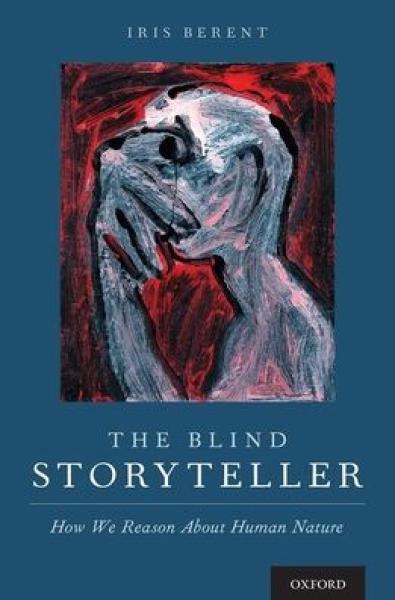Description
persist after we die?
Going all the way back to ancient Greece, human nature and the mind-body problem have been the topics of fierce scholarly debates. But laypeople also have strong opinions about such matters. Most people believe, for example, that newborn babies don't know the difference between right and
wrong--such knowledge, they insist, can only be learned. For emotions, they presume the opposite--that our capacity to feel fear, for example, is both inborn and embodied.
These beliefs are stories we tell ourselves about what we know and who we are. They reflect and influence our understanding of ourselves and others and they guide every aspect of our lives. In The Blind Storyteller, the cognitive psychologist Iris Berent exposes a chasm between our intuitive
understanding of human nature and the conclusions emerging from science. Her conclusions show that many of our stories are misguided. Just like Homer, we, the storyteller, are blind.
How could we get it so wrong? In a twist that could have come out of a Greek tragedy, Berent proposes that our errors are our fate. These mistakes emanate from the very principles that make our minds tick: Our blindness to human nature is rooted in human nature itself.
An intellectual journey that draws on philosophy, anthropology, linguistics, cognitive science, and Berent's own cutting-edge research, The Blind Storyteller grapples with a host of provocative questions, from why we are so afraid of zombies, to whether dyslexia is "just in our heads," from what
happens to us when we die, to why we are so infatuated with our brains. The end result is a startling new perspective on the age-old nature/nurture debate--and on what it means to be human.
"An intellectual journey that draws on philosophy, anthropology, linguistics, cognitive science, and Berent's own cutting-edge research, The Blind Storyteller grapples with a host of provocative questions, from why we are so infatuated with our brains to what happens when we die. The end result is a startling new perspective on our humanity."--
"Not since William James has an author so clearly articulated the functioning of the human mind. Berent provides a clear and profound study of the ways the human mind gets in the way of knowing its own nature. It does this, she argues, as it is innately equipped with two ways of looking at the
world-essentialism and dualism-that together distort our view of reality... An impressive array of scientific evidence is drawn into the text in support of the author's central contention concerning the inherent obliviousness of human nature. A careful read of this book, indeed, could help one
discard certain na�ve intuitions about one's own thinking and identity that may have made self-knowledge elusive. This title should make the core reading list for all students and researchers of psychology, and may also be welcomed by general readers who want another angle on philosophical issues of
perception, the narration of the self, and the nature of emotions." -- Choice
"Basing herself on rich and impressive personal accomplishment, Iris Berent is exploring issues of deep significance in original and thoughtful ways. It should be a major contribution to science and general understanding of 'who we are.'"
-- Noam Chomsky
"We should all be aware of our na�ve biases, the better to discount them in our thinking and research. In this deep and insightful analysis, Iris Berent shows how our folk intuitions about minds and bodies may distort our best understanding of what we know and who we are."
-- Steven Pinker, Johnstone Professor of Psychology, Harvard University, and the author of How the Mind Works and The Blank Slate
"In this original and provocative book, Iris Berent argues that our minds are structured in ways that blind us to our true natures. We possess innate biases that distort how we make sense of the world--including, ironically enough, making us prone to reject the idea that we have innate biases. The
Blind Storyteller is several things at once: A careful exploration of how we think about our own natures, a trenchant critique of empiricist theories of psychology, and a wise, engaged, and very accessible introduction to the rich structure of the human mind."
-- Paul Bloom, Brooks and Suzanne Regan Professor of Psychology at Yale University, and author of Against Empathy: The Case for Rational Compassion
Product Details
- Oxford University Press, Brand
- May 1, 2020 Pub Date:
- 0190061928 ISBN-10:
- 9780190061920 ISBN-13:
- 304 Pages
- 9.3 in * 6.4 in * 1.3 in Dimensions:
- 1 lb Weight:




